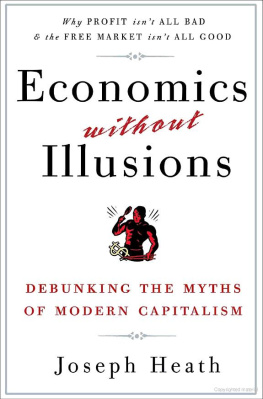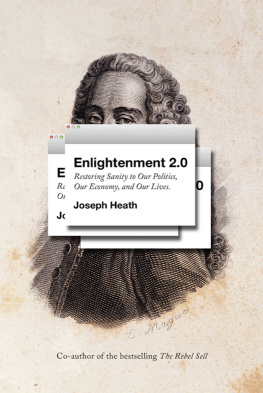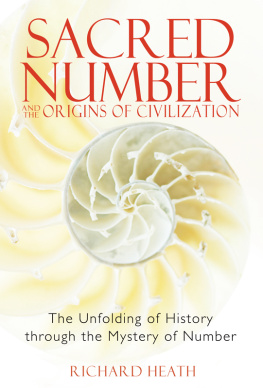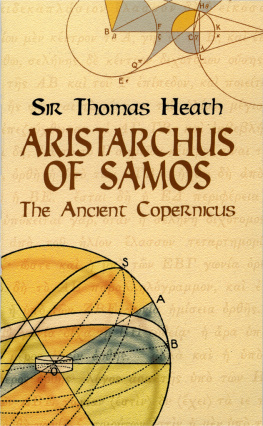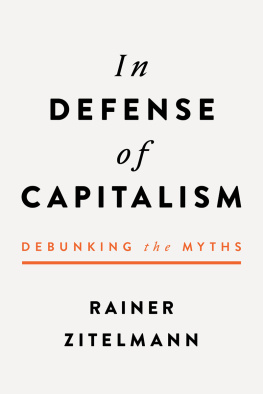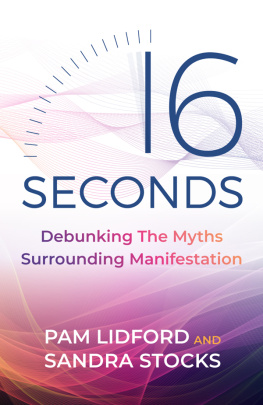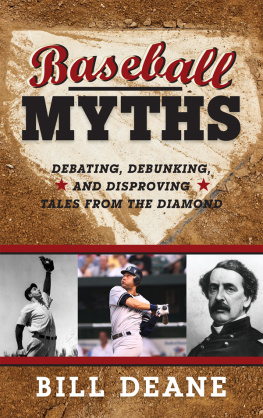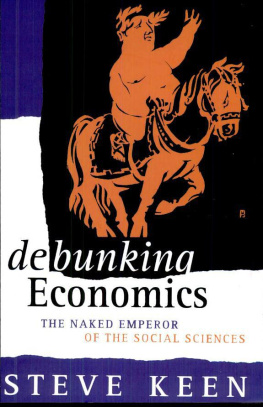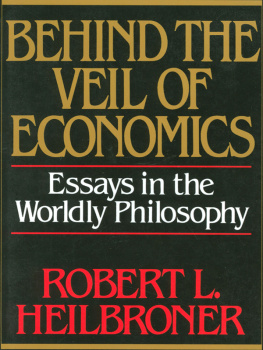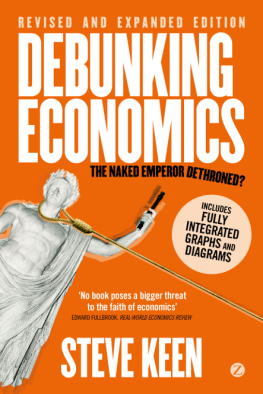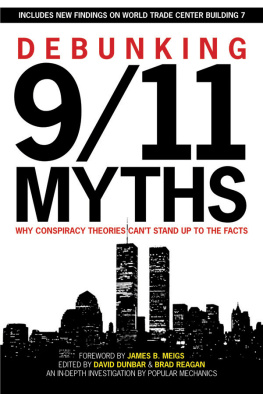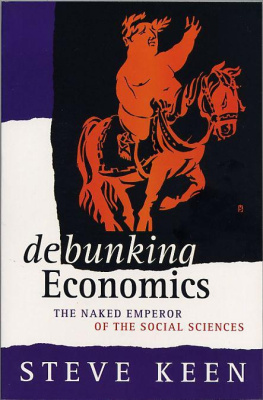Heath - Economics without illusions : debunking the myths of modern capitalism
Here you can read online Heath - Economics without illusions : debunking the myths of modern capitalism full text of the book (entire story) in english for free. Download pdf and epub, get meaning, cover and reviews about this ebook. City: New York, year: 2009,2010, publisher: Broadway Books, genre: Romance novel. Description of the work, (preface) as well as reviews are available. Best literature library LitArk.com created for fans of good reading and offers a wide selection of genres:
Romance novel
Science fiction
Adventure
Detective
Science
History
Home and family
Prose
Art
Politics
Computer
Non-fiction
Religion
Business
Children
Humor
Choose a favorite category and find really read worthwhile books. Enjoy immersion in the world of imagination, feel the emotions of the characters or learn something new for yourself, make an fascinating discovery.
- Book:Economics without illusions : debunking the myths of modern capitalism
- Author:
- Publisher:Broadway Books
- Genre:
- Year:2009,2010
- City:New York
- Rating:5 / 5
- Favourites:Add to favourites
- Your mark:
- 100
- 1
- 2
- 3
- 4
- 5
Economics without illusions : debunking the myths of modern capitalism: summary, description and annotation
We offer to read an annotation, description, summary or preface (depends on what the author of the book "Economics without illusions : debunking the myths of modern capitalism" wrote himself). If you haven't found the necessary information about the book — write in the comments, we will try to find it.
Economics without illusions : debunking the myths of modern capitalism — read online for free the complete book (whole text) full work
Below is the text of the book, divided by pages. System saving the place of the last page read, allows you to conveniently read the book "Economics without illusions : debunking the myths of modern capitalism" online for free, without having to search again every time where you left off. Put a bookmark, and you can go to the page where you finished reading at any time.
Font size:
Interval:
Bookmark:

ACKNOWLEDGMENTS
I would like to thank the following people for helping me, in one way or another, with this book: Vida Panitch, Sareh Pouryousefi, Andrew Potter, Alisa Kim, Sergio Tenenbaum, Wayne Norman, Rodolphe Dudebout, Justin To, Jacqueline To, Adrian Scotchmer, and Simon Heath. Special thanks to Abraham Singer for the Atkins diet analogy and Arthur Ripstein for the trip to Hawaii analogy.
I had the opportunity to test-drive some of these arguments in columns that I wrote for the Montreal Gazette and Policy Options magazine, as well as in an article in THIS Magazine. I would like to thank the editors, Brian Kappler, L. Ian MacDonald, and Julie Chrysler, respectively. I would also like to acknowledge a debt of gratitude to HarperCollins Canada for supporting my work, and to Jim Gifford for whipping it all into shape. Finally, I would like to thank the Social Sciences and Humanities Research Council of Canada for financial support of this project.
ALSO BY JOSEPH HEATH
Nation of Rebels
( WITH ANDREW POTTER )
The Efficient Society
Joseph Heath is an associate professor at the University of Toronto, where he teaches in the Department of Philosophy and the School of Public Policy and Governance. He is the author of four previous books, including the international bestseller Nation of Rebels: Why Counterculture Became Consumer Culture (with Andrew Potter). He lives in Toronto.

POSTSCRIPT TO THE U.S. EDITION
The great financial crisis of 2008 has provoked an extraordinary round of soul-searching among economists. The reasons for this are not difficult to find. Not only did most members of the profession fail to predict the impending catastrophe, but many aided and abetted it by aggressively rationalizing the very practices and institutional arrangements that gave rise to the collapse of the U.S. investment-banking system.
In the background was the assumption, widely shared among economists, that contractual arrangements entered into by private parties were efficient until proven otherwise. Thus buckets of ink (or terabytes of keystrokes) were wasted, essentially intellectualizing the work of financiers and bankers (much the way academics in the humanities intellectualize the work of artists and writers). The implosion on Wall Street was therefore a source of considerable embarrassment. Imagine an art historian, invited to offer his impressions of a long-lost work by Marcel Duchamp. After waxing poetic for several minutes about its transgressive and post-auratic qualities, he is informed that a mistake has been made, that the work in question is actually just a urinal. This is basically the situation that many academic economists found themselves in last fall.
The repercussions have been swiftly felt. While the public debate has been dominated by finger-pointing at a bewildering range of suspects, the debate in the economics profession has become quite narrowly focused on two rival theories.
The dominant view of markets had been that they were rational and efficient. Yet in the fall of 2008 it became clear that financial markets had failed to perform efficiently. One obvious explanation was that people were behaving irrationally. For proponents of behavioral economics, the crisis created a huge I told you so moment. Many were quick to hop on this bandwagon, arguing that economists were blind-sided as a result of their failure to acknowledge the role that animal spirits play in investment decisions.
The other possibility is that no one acted all that irrationally, but that rationality and efficiency just dont go together quite as neatly as had been assumed. Perhaps its the same old story (recounted in ) of collective action problems and market failure. Yet why then did so many economists miss all the warning signs? The problem is not that they assumed people were rational. The problem stemmed from what the Harvard law professor Robert C. Clark once described as facile optimism about the optimality of existing institutions.
The first theory is the easier sell. It certainly seems to be the one that everyone wants to believe. It appeals to the outrage of the public and the desire to condemn the eggheads who got us into this mess. It also, however, feeds into the lamentable tendency to treat all of economics as hogwash, or as a castle in the sky invented by ivory-tower intellectuals. This is terribly unhelpful.
While the second view is a bit stodgy, it has a lot more to recommend it. I mention this because, while many of the economic ideas in this book may strike some people as being outside the box, I am actually a partisan of the conventional, old-fashioned rationality-based approach. This isnt to say that I think people are rational all the time. It means that we have no choice but to act as if most people are mostly rational most of the time. This view is becoming sufficiently unpopular that I feel I should say a few words in defense of it.
It is here that my day job as a philosopher becomes relevant, since there is a well-established argumentincredibly famous in philosophical circles, mostly unheard-of by the rest of the worldin support of the rationality-based approach. It was developed by the American philosopher Donald Davidson, and it hinges upon what he called the principle of charity.
The basic idea is pretty simple. We can observe peoples actions, but we cannot observe their motives. We dont really know what people are thinking or what they are trying to achieve. Thus any story we concoct about a persons behavior is going to be just one of many different stories that are consistent with what we see. So how do we choose one story? Essentially, we pick the one that makes the person come out sounding best. We favor the interpretation that minimizes the ascription of error. If we didnt, we would never be able to understand one another, even with respect to simple things.
Allow me to illustrate this with an example. One of the downsides of working in philosophy is that it attracts a lot of people with mental-health problems. Its not all that uncommon for students to submit notebooks of crazed ramblings in lieu of essays, or for professors to barricade themselves in their offices. Many years ago I had a colleague who was facing some challenges of this sort. At the time, he was writing a book about the great German philosopher and logician Gottlob Frege. He was very frustrated by the university administrations failure to give him adequate credit for his work-in-progress. At one point, in a fit of anger, he exclaimed, Dont these people realize theyre dealing with the greatest philosopher of the twentieth century? My friend who was speaking to him tried gently to correct this, saying, Wasnt Frege more of a nineteenth-century philosopher? To which my colleague replied, Frege? Im not talking about Frege; Im talking about me.
So what exactly happened here? My colleague started out saying something that was obviously false. This created an interpretive challenge for my friend. Clearly a mistake had been made. The way he constructed his interpretation was by ascribing the smallest error possible to the speakerhaving confused the date of Freges major work. It turns out this wasnt right; the speaker had made a much larger mistakehaving confused himself with the greatest philosopher of the twentieth century.
Font size:
Interval:
Bookmark:
Similar books «Economics without illusions : debunking the myths of modern capitalism»
Look at similar books to Economics without illusions : debunking the myths of modern capitalism. We have selected literature similar in name and meaning in the hope of providing readers with more options to find new, interesting, not yet read works.
Discussion, reviews of the book Economics without illusions : debunking the myths of modern capitalism and just readers' own opinions. Leave your comments, write what you think about the work, its meaning or the main characters. Specify what exactly you liked and what you didn't like, and why you think so.

